
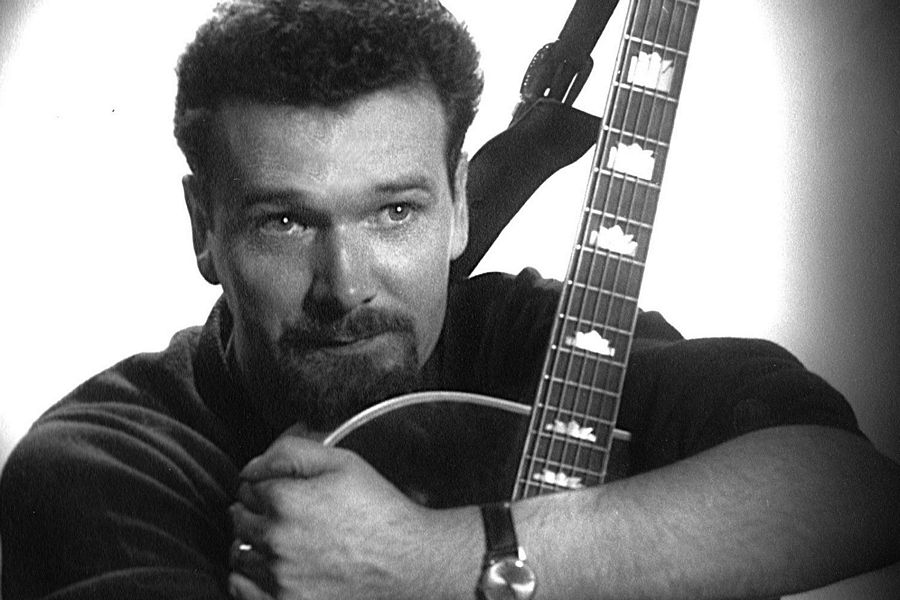
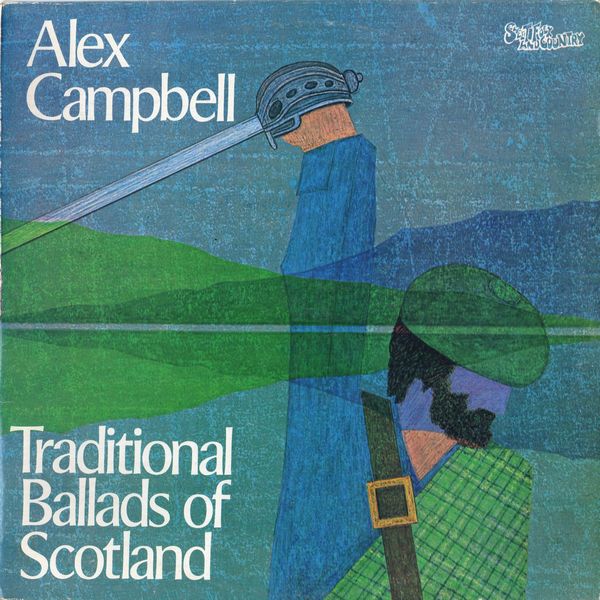 |
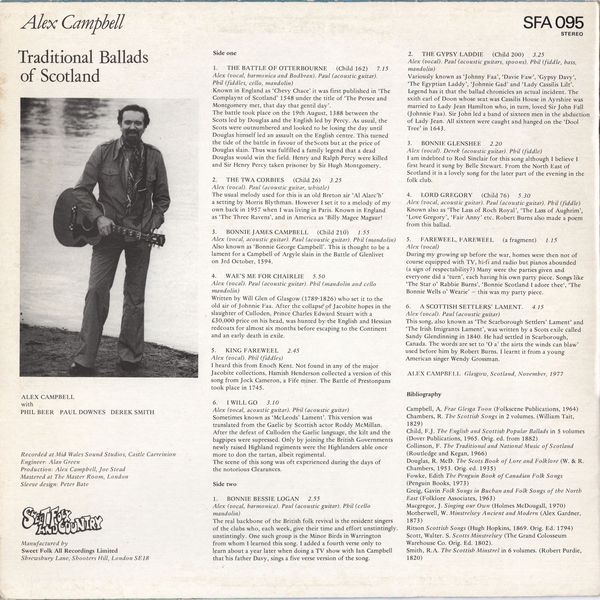
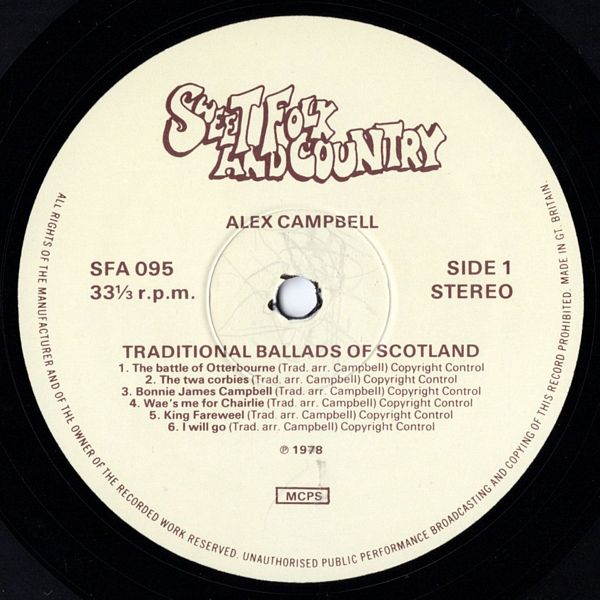
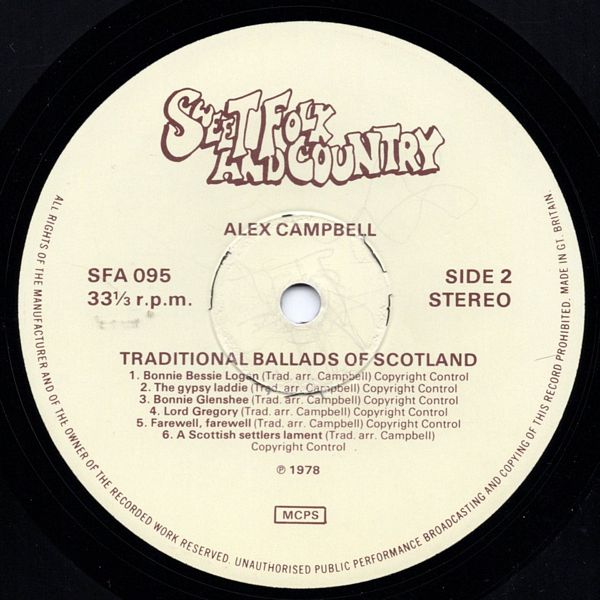
|
Sleeve Notes
The Battle Of Otterbourne — Alex (vocal, harmonica and Bodhran), Paul (acoustic guitar), Phil (fiddles, cello, mandolin)
Known in England as 'Chevy Chace' it was first published in 'The Complaynt of Scotland' 1548 under the title of 'The Persee and Montgomery met, that day that gentil day'.
The battle took place on the 19th August, 1388 between the Scots led by Douglas and the English led by Percy. As usual, the Scots were outnumbered and looked to be losing the day until Douglas himself led an assault on the English centre. This turned the tide of the battle in favour of the Scots but at the price of Douglas slain. Thus was fulfilled a family legend that a dead Douglas would win the field. Henry and Ralph Percy were killed and Sir Henry Percy taken prisoner by Sir Hugh Montgomery.
The Twa Corbies — Alex (vocal), Paul (acoustic guitar, whistle)
The usual melody used for this is an old Breton air 'Al Alarc'h' a setting by Morris Blythman. However I set it to a melody of my own back in 1957 when I was living in Paris. Known in England as 'The Three Ravens', and in America as 'Billy Magee Magaur!
Bonnie James Campbell — Alex (vocal, acoustic guitar), Paul (acoustic guitar), Phil (mandolin)
Also known as 'Bonnie George Campbell'. This is thought to be a lament for a Campbell of Argyle slain in the Battle of Glenlivet on 3rd October, 1594.
Wae's Me For Chairlie — Alex (vocal), Paul (acoustic guitar), Phil (mandolin and cello mandolin)
Written by Will Glen of Glasgow (1789-1826) who set it to the old air of Johnnie Faa. After the collapse of Jacobite hopes in the slaughter of Culloden, Prince Charles Edward Stuart with a £30,000 price on his head, was hunted by the English and Hessian redcoats for almost six months before escaping to the Continent and an early death in exile.
King Fareweel — Alex (vocal), Phil (fiddles)
I heard this from Enoch Kent. Not found in any of the major Jacobite collections, Hamish Henderson collected a version of this song from Jock Cameron, a Fife miner. The Battle of Prestonpans took place in 1745.
I Will Go — Alex (vocal, acoustic guitar), Phil (acoustic guitar)
Sometimes known as 'McLeods' Lament'. This version was translated from the Gaelic by Scottish actor Roddy McMillan.
After the defeat of Culloden the Gaelic language, the kilt and the bagpipes were supressed. Only by joining the British Governments newly raised Highland regiments were the Highlanders able once more to don the tartan, albeit regimental.
The scene of this song was oft experienced during the days of the notorious Clearances.
Bonnie Bessie LoganX Ale — (vocal, harmonica), Paul (acoustic guitar), Phil (cello mandolin)
The real backbone of the British folk revival is the resident singers of the clubs who, each week, give their time and effort unstintingly. unstintingly. One such group is the Minor Birds in Warrington from whom I learned this song. I added a fourth verse only to learn about a year later when doing a TV show with Ian Campbell that his father Davy, sings a five verse version of the song.
The Gypsy Laddie — Alex (vocal), Paul (acoustic guitars, spoons), Phil (fiddle, bass, mandolin)
Variously known as 'Johnny Faa', 'Davie Faw', 'Gypsy Davy',
'The Egyptian Laddy', 'Johnnie Gad' and 'Lady Cassilis Lilt'. Legend has it that the ballad chronicles an actual incident. The sxith earl of Doon whose seat was Cassilis House in Ayrshire was married to Lady Jean Hamilton who, in turn, loved Sir John Fall (Johnnie Faa). Sir John led a band of sixteen men in the abduction of Lady Jean. All sixteen were caught and hanged on the 'Dool Tree' in 1643.
Bonnie Glenshee — Alex (vocal). Derek (acoustic guitar), Phil (fiddle)
I am indebted to Rod Sinclair for this song although I believe I first heard it sung by Belle Stewart. From the North East of Scotland it is a lovely song for the later part of the evening in the folk club.
Lord Gregory — Alex (vocal, acoustic guitar), Paul (acoustic guitar), Phil (fiddle)
Known also as 'The Lass of Roch Royal', 'The Lass of Aughrim', 'Love Gregory', 'Fair Anny' etc. Robert Burns also made a poem from this ballad.
Fareweel, Fareweel — Alex (vocal)
During my growing up before the war, homes were then not of course equipped with TV, hi-fi and radio but pianos abounded (a sign of respectability?) Many were the parties given and everyone did a 'turn', each having his own party piece. Songs like 'The Star o' Rabbie Burns', 'Bonnie Scotland I adore thee', 'The Bonnie Wells o' Wearie' — this was my party piece.
A Scottish Settlers' Lament — Alex (vocal), Paul (acoustic guitar)
This song, also known as 'The Scarborough Settlers' Lament' and 'The Irish Imigrants Lament', was written by a Scots exile called Sandy Glendinning in 1840. He had settled in Scarborough, Canada. The words are set to 'O a' the airts the winds can blaw' used before him by Robert Burns. I learnt it from a young American singer Wendy Grossman.
Alex Campbell
Glasgow, Scotland, November, 1977